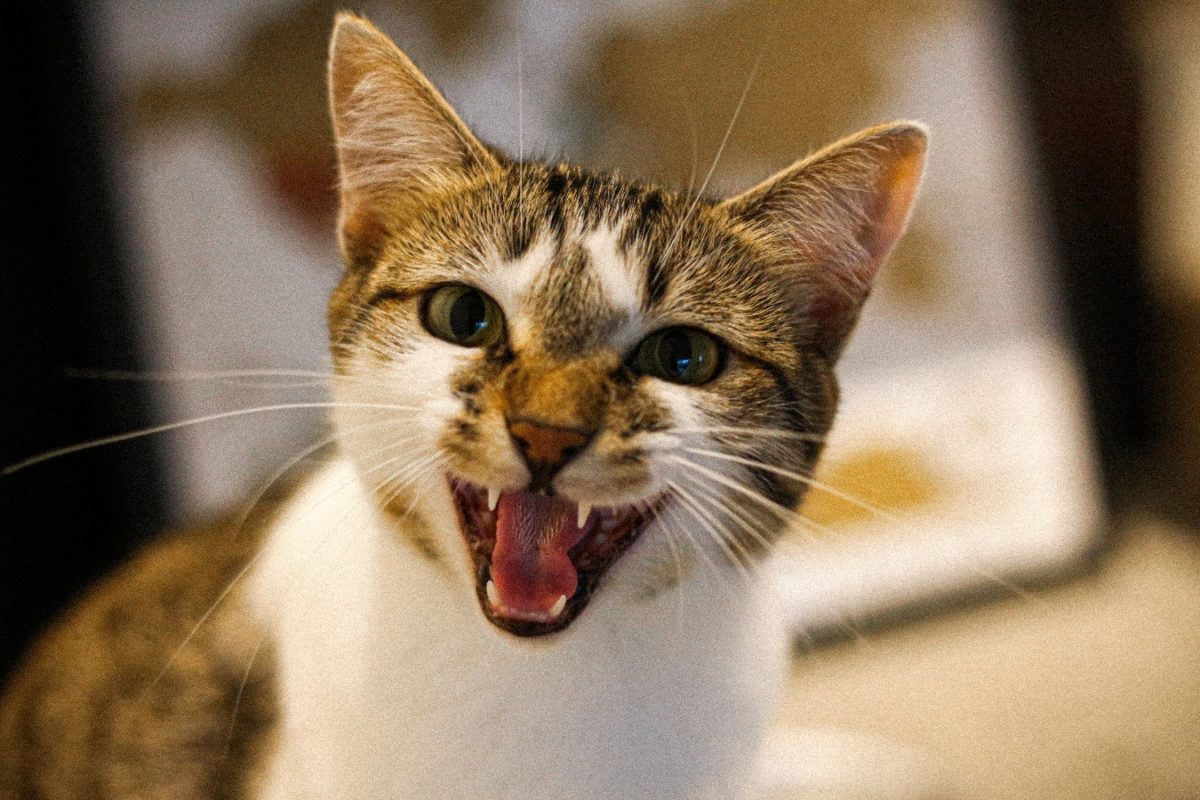Everything, Behavior, Cats
Excessive Meowing: When Your Cat Talks Too Much
Fluffy meows when she’s hungry, when she wants attention, when she smells food…and sometimes for reasons unknown to us. Her meowing may be conversational, or it may be annoying. Especially when we’re trying to fall asleep at night.
Why cats meow
Except between mothers and kittens, cats don’t usually meow to each other. Meowing is a form of communication that they use with humans. Cats raised with people learn from an early age that meowing is a way to get people to attend to their wants.
Some breeds of cats meow more than others do. Siamese and Burmese cats, for example, are known for their vocalizations.
We probably want our cats to meow to let us know when they want in or out. We expect them to meow when it’s dinnertime. But when cats meow excessively, their meowing may indicate a health or behavior problem.
Excessive meowing and your cat’s health
When cats get old, they may meow more because they’re disoriented, confused, or feeling needy. If they’re meowing more loudly than they used to, they could be losing their hearing and be unable to hear themselves as well at their normal volume.
Cats that haven’t been neutered typically meow a lot when they’re feeling distressed. Females meow to get outside when they’re in heat, and males meow to get to females.
Pain, neurological problems, or major changes such as loss of vision can also cause cats to meow excessively.
If your cat’s excessive meowing is possibly because of a health problem, take your cat to a veterinarian to have your cat checked for any problems. If your cat hasn’t been neutered, the only way to alleviate excessive meowing and the associated distress is to have your cat neutered.
Excessive meowing and behavior problems
Cats learn through experience that repeated meowing gets them what they want. They will stop if they get what they want or if they learn that their continued meowing no longer gets them their intended results.
First, identify what your cat wants. Is your cat bored? Lonely? Hungry? Anxious? Notice the timing of the excessive meowing episodes. If they happen after you’ve been away for a long time, your cat may be lonely and bored. If your cat goes into a meowing frenzy in the middle of the night, she’s probably wide awake and ready to play.
Second, meet your cat’s needs when she isn’t meowing. Give her more attention if that’s what she craves. Play with her and give her lots of exercise just before you go to bed so that she’ll be tired and more likely to sleep during the night. Feed her at regular times so that she’ll know when to expect meals.
Third, don’t give her any attention when she is meowing excessively. Even negative attention must be avoided during such times because it reinforces the behavior — meowing gets results. If she meows a lot during the night, keep her in another room or wear earplugs until she realizes that you aren’t going to get up and give her attention during the night any more.


